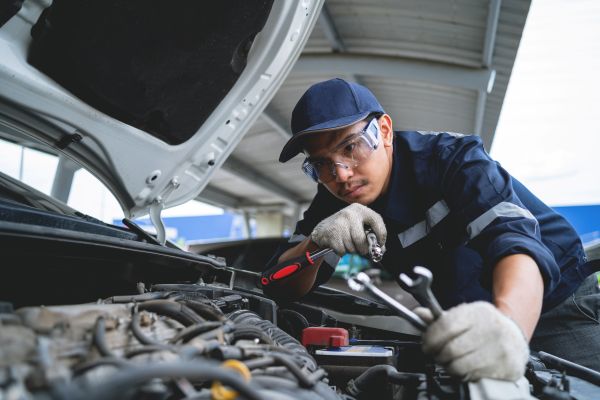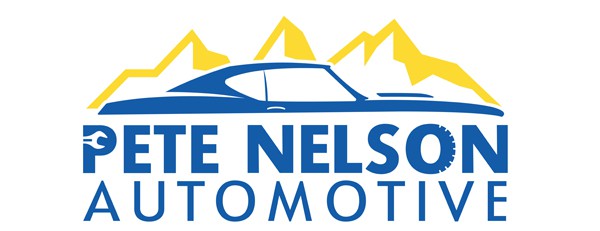 Engine tune-ups are a crucial part of vehicle maintenance that can prevent poor engine performance and costly repairs. Many drivers overlook these essential maintenance tasks, but staying on top of them ensures efficient fuel consumption, improved gas mileage, smoother driving, and fewer future breakdowns.
Engine tune-ups are a crucial part of vehicle maintenance that can prevent poor engine performance and costly repairs. Many drivers overlook these essential maintenance tasks, but staying on top of them ensures efficient fuel consumption, improved gas mileage, smoother driving, and fewer future breakdowns.
Key Components of an Engine Tune-Up
A proper engine tune-up involves checking and maintaining several essential parts that contribute to overall vehicle health.
Spark Plug Replacements & Ignition Components
Spark plugs ignite the fuel mixture within a gasoline engine, directly impacting acceleration and efficiency. Corroded spark plugs, faulty ignition contact, and worn coil packs or coil boots can lead to engine misfire and poor acceleration. Regularly replacing spark plugs, ignition wires, and coil boots ensures optimal engine performance and proper ignition timing.
Fuel System Maintenance
Dirty fuel or clogged fuel injectors can disrupt the air mixture, leading to decreased efficiency. Routine inspections of the fuel pump, fuel lines, and fuel tank help maintain an efficient fuel system, reducing premature wear on complex components. Addressing fuel mixture issues improves power and prevents costly repairs tomorrow.
Timing Belts & Hoses
Timing belts play a critical role in synchronizing engine timing and combustion chamber functions. Failing to replace a worn serpentine belt can result in severe engine damage. Hoses transport essential fluids, and leaks can lead to overheating or steering problems. Keeping them in good condition prevents unexpected breakdowns.
Fluid Checks & Replacements
Essential fluids, including engine oil, power steering fluid, transmission fluid, and coolant, need regular monitoring. Contaminated or low fluid levels contribute to loss of performance and premature component wear. Ensuring these are within recommended service intervals extends vehicle longevity.
Signs Your Vehicle Needs a Tune-Up
Ignoring early warning signs can lead to major issues. Here are key indicators your vehicle needs attention:
Trouble Starting the Car
Issues with electronic ignition, ignition contact, corroded spark plugs, or a weak fuel pump can cause starting difficulties. A tune-up at a trusted service center addresses these problems, improving reliability.
Decreased Fuel Efficiency
If you notice increased fuel consumption and lower fuel economy, it may be due to clogged fuel injectors, a dirty air filter, or faulty spark plugs. Addressing these concerns ensures optimal gas mileage.
Unusual Noises & Dashboard Warnings
Knocking sounds, hissing, or screeching indicate possible issues with timing belts, air mixture problems, or fuel system malfunctions. Additionally, ignoring check engine lights can lead to expensive repairs.
Regular Maintenance Prevents Costly Repairs
Following recommended maintenance intervals ensures long-term reliability. Addressing minor issues now prevents future breakdowns and expensive repairs. Regular tune-ups involve:
- Replacing spark plugs, coil packs, ignition wires, and coil boots.
- Inspecting fuel pumps, fuel injectors, fuel lines, fuel tanks, and filters.
- Checking timing belts, hoses, and power steering fluid.
- Monitoring fuel mixture, combustion chamber efficiency, and air filters for optimal performance.
FAQs About Engine Tune-Ups
How often should I get an engine tune-up? Most modern vehicles require a tune-up every 100,000 miles, while older models may need service every 10,000 to 12,000 miles. Checking your owner’s manual for specific service intervals is best.
Will a tune-up improve my fuel economy? Yes! Replacing worn spark plugs, fuel injectors, and air filters helps optimize fuel mixture and engine performance, leading to better gas mileage.
What happens if I skip a tune-up? Neglecting tune-ups can result in decreased fuel efficiency, engine misfire, rough idling, and costly repairs due to worn-out components.
Does a tune-up include an oil change? Not necessarily, but it is recommended to replace engine oil and oil filters during a tune-up to keep the engine running smoothly.
Can I do a tune-up myself? Basic tasks like replacing air filters and spark plugs can be done at home, but complex components like timing belts, ignition timing, and fuel injectors are best serviced by a professional.
Keep Your Engine Running Smoothly—Schedule a Tune-Up Today!
Regular engine tune-ups improve fuel efficiency, reduce premature wear, and enhance overall performance. By maintaining critical components and following service schedules, drivers can prevent costly breakdowns and extend vehicle longevity. Don’t wait for poor acceleration or a loss of performance—schedule a tune-up with Pete Nelson Automotive today! Our expert technicians are here to keep your car running smoothly. Call us now at 623-974-4723 to book your appointment!


